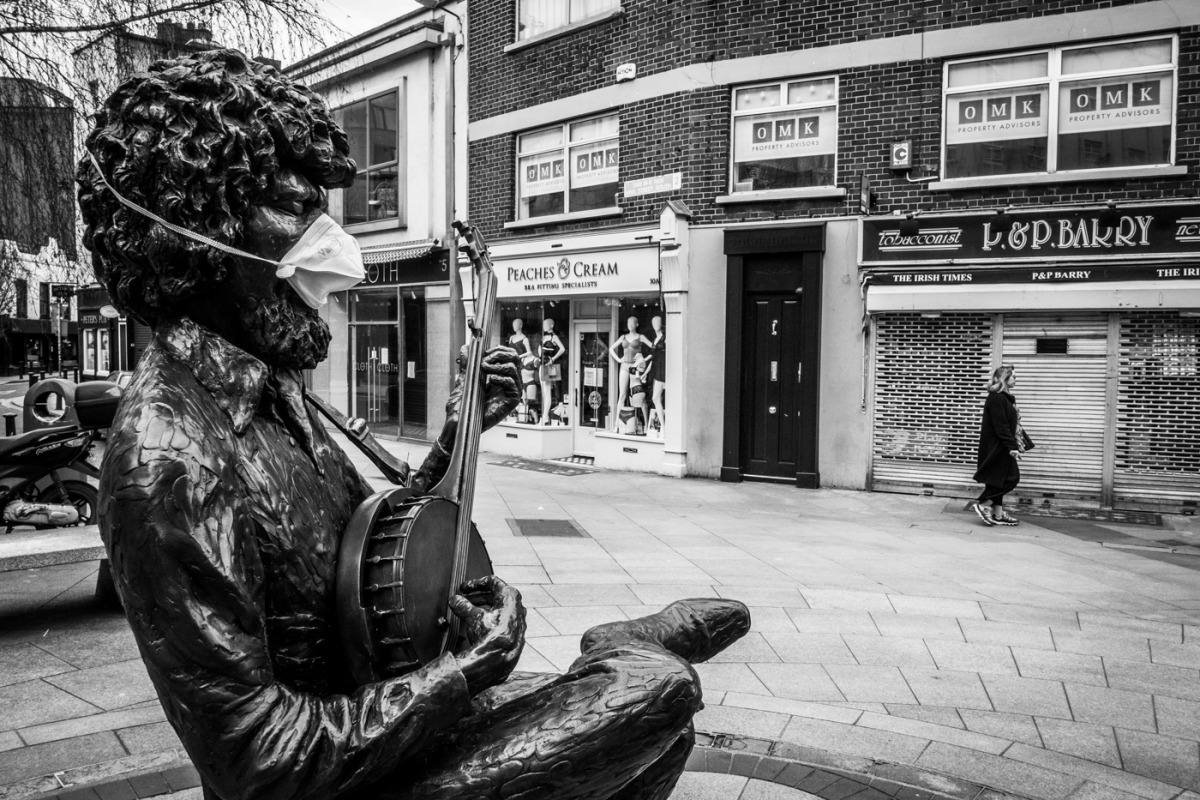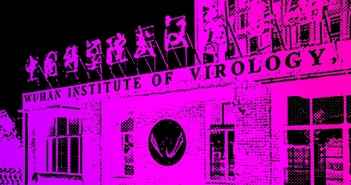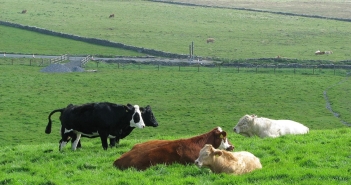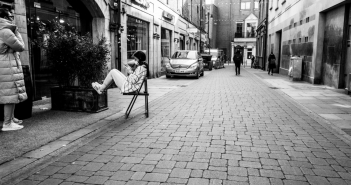It should be a source of embarrassment that in Ireland we still have had no public inquiry into the State’s response to the COVID-19 pandemic. Despite talk of terms of reference, nothing has materialized, and nor does this situation seem likely to change during the lifetime of new Taoiseach Harris’s government.
The mainstream media, which received millions in advertising revenue throughout the pandemic, would appear to have no interest in searching questions being asked. It may not be appetising to recall overwhelmingly uncritical coverage; placing the daily tally of new cases and deaths on their front pages news for almost two years; seemingly oblivious to everything else happening in the world.
Nor does the main opposition party in Dáil Éireann, Sinn Féin seem gung ho for one either. During the pandemic, they failed to interrogate adequately the domineering, even dictatorial, role of Chief Medical Officer Tony Holohan in particular, or the runaway budgets that developed in that period. Despite this spending, our health service appears to be no better equipped to deal with medical emergencies.
In my view, Sinn Féin (and other opposition parties) should reconsider this stance as it hands a huge political opportunity to opponents on the far right as we enter a period of elections. The Irish people require accountability on this era-defining response.
For all its faults, and failure to interrogate basic premises, the U.K. Covid inquiry is at least holding power to account. That inquiry implicitly acknowledges that extraordinary and unprecedented measures were taken, undermining basic civil liberties, and causing grave harms, including to children denied education and those caught in situations of domestic violence. The damage to our collective mental healths may be more difficult to quantify.
The pandemic experience in Ireland
Kevin Bardosh sits down with Frank Armstrong, Editor of Cassandra Voices, an Irish public intellectual forum and online news source, to discuss the pandemic experience in Ireland and what we can expect from a possible Irish Covid Inquiry.… pic.twitter.com/m9xme5z5Gu
— Collateral Global Charity (@collateralglbl) May 15, 2024
A self-fulling prophecy
Writing for the Irish Times on May 23 2020 clinical psychologist and author Maureen Gaffney reckoned that ‘Covid-19 has scored a direct hit on our most basic psychological drives.’ She seemed oblivious, however, to how statements such as her own that ‘the consequences of the coronavirus pandemic may have changed life more permanently’ might have been contributing to the anxiety of her readers.
The direct health impact of what Peter Hitchens acutely described as ‘the Great Panic of 2020’ are fairly obvious. But the ripple of psychological effects is less easy to assess. Psychological injury, or so-called nervous shock, is difficult to quantify in law. A successful claim requires reasonable foreseeability, and the presence of a duty of care.
Dr Gabor Maté, in particular, has pointed to the effect of stress and trauma on our health. Thus, if a national leader with a duty of care says that thousands of people are likely to die from a deadly disease and imposes a stay-at-home order for an indefinite time period, serious collateral damage in terms of stress and even trauma is reasonably foreseesable. Unless they are working from a firm evidence basis and/or a robust rational, political leaders should exercise great caution in making such pronouncements or laws.
A 2017 study demonstrated that people who feel lonely report worse cold symptoms than individuals who are not. The exacerbating factor of loneliness on Covid symptoms may be just the tip of the iceberg.
In 2020 Dr Marcus de Brun highlighted in this magazine how psychological stress would be a major determinant in one’s experience with Covid-19: ‘Psychological stress is (medically speaking),’ he said, ‘a self-fulling prophecy. People who are most anxious about becoming ill are most likely to become ill. If you ask yourself often enough whether or not you have a headache, you will eventually experience one.’
The experience of photographer Barry Delaney also writing for Cassandra Voices is instructive:
By early March a few cases were being recorded in Ireland, the media went into hysterical frenzy, almost shaming the inevitable innocent cases.
Then I got an email to say that my next project was now cancelled. Devastated, I went for my usual swim, sometimes the magic water doesn’t work, it didn’t that day. I came home frozen, riddled with fear, no work, fear of how to pay my rent; suddenly I became unwell. A sore throat and mild fever, paralysed me, as I lay alone on my sofa.
But no cough. Back then the only symptom mentioned was the hacking cough. I checked my phone and there was now talk of Ireland entering lockdown around St Patrick’s Day. Armageddon was arriving Supermarkets running out of food, even fucking toilet paper. I was now in a delirious state of panic.
The next day the fever went, but I still had the sore throat. On the Monday I tried phoning my Doctor; no answer; permanently engaged or just automated messages to contact some new HSE hub.
I was now in a state of constant anxiety, with no food in the house, and yet I couldn’t leave home. and I live alone.
I phoned my ex wife. She kindly said she’d shop for me. On St. Patrick’s Day Leo made his grim, great speech. I still felt he knew something that he wasn’t telling us. Maybe this virus was as deadly as the Spanish flu of 1918-20 that killed up to fifty million, including my grand-uncle aged just nineteen. Death figures of 85,000 were being predicted in Ireland by our Fear driven media.
All that week I had an intermittent sore throat, but still could not get in contact with my Doctor.
The thing to watch for was the breathlessness I had heard. This was what caused the dangerous pneumonia. On the Saturday night I went to bed early alone, and suddenly had problems breathing. It being Saturday I could not disturb my Doctor, nor did I want an ambulance arriving to take me to quarantine in hospital, where I’d be met by Hazmat-clad Doctors and become Patient No. 3. Laid low by fear and shortness of breath I could not sleep. By 5am I made a decision to complete my final book, Americans Anonymous and get my things in order in case this was it.
Barry’s panic is likely to have been replicated across the population.
The pandemic experience in Ireland
“Ireland is an unusual country; instinctively perhaps anti-English would often be the reflex.”
“When the pandemic began, people were glued to their television screens like everybody else around the world. They were observing what Boris Johnson… pic.twitter.com/TxrJhxVtba
— Collateral Global Charity (@collateralglbl) May 15, 2024
Around for a lot longer than initially understood
Yet Covid-19 had been around for a lot, lot longer than we imagined by the time in February 2020 it was presented to us as a SARS-like illness. Indeed, Spanish virologists found traces of the novel coronavirus in a sample of Barcelona waste water collected in March 2019, some nine months before it was identified in China, according to the University of Barcelona. Similarly, a study by the National Cancer Institute (INT) of Italy found that it was circulating in Italy in September, 2019.
Even the first Irish death attributed to Covid-19 demonstrates that the panic of March, 2020, when cases seemed to be spreading from Europe, was unfounded.
That patient presented himself at Cork University Hospital on February 29th, 2020, days before the first confirmed case (via a PCR test) of COVID-19 in the Republic. Analysis later established the particular strain in his case showed ‘very little difference’ from the original strain from China’s Hubei province, and had none of the characteristic mutations found in strains then prevalent in Bavaria or Lombardy.
The man, however, had no epidemiological link to any area where the virus was prevalent at the time or any link to a confirmed case.
All this vindicates Oxford’s Professor Sunetra Gupta, assessment from the outset that Covid-19 had been circulating for months prior to the imposition of lockdowns, and was far less deadly than assumed by Imperial’s Professor Neil Ferguson in his famous paper. Tellingly, it was hardly registering in our hospitals in the winter of 2019-2020.
The pandemic experience in Ireland
“I found the ‘Zero-Covid’ movement quite absurd, but it really was popular.”
“Ireland traditionally is quite a catholic country. The ‘Zero-Covid’ movement was a sort of Holier movement than even the mainstream.”
“Many of the spokespeople had… pic.twitter.com/XksuYtqz7D
— Collateral Global Charity (@collateralglbl) May 15, 2024
Long Covid
It may be that many of the symptoms associated with Long Covid or ‘long haulers’ as sufferers are known in the U.S., are the product of that collective panic; a combination of disease and trauma locked bodies over months of painful lockdowns.
In March 2021 Adam Gaffney, an assistant professor in medicine at Harvard Medical School, argued for a more critical appraisal of Long Covid. Having expressed scepticism around a condition characterised by symptoms such as ‘brain fog’, he recalls being contacted by a journalist who said: ‘I’m asking as much as a person as a journalist because I’m more terrified of this syndrome than I am of death.’
Gaffney acknowledges ‘myriad long-term effects, including physical and cognitive impairments, reduced lung function, mental health problems, and poorer quality of life’ from severe bouts of COVID-19 – long recognised as post-viral syndrome – but cites a survey showing two-thirds of ‘long haulers’ had negative coronavirus antibody tests, and another, organised by self-identifying Long Covid patients indicating around two-thirds of those surveyed had undergone blood testing reported negative results.
He asserted: ‘it’s highly probable that some or many long-haulers who were never diagnosed using PCR testing in the acute phase and who also have negative antibody tests are “true negatives.’ In other words, for many this may have been a disease with a psychological origin, which Gaffney attributes to ‘skyrocketing levels of social anguish and mental emotional distress,’ referencing a paper showing that about half of people with depression also had unexplained physical symptoms.
The pandemic experience in Ireland
“The structure of the Irish economy is dependent on a number of large multi-nationals who operate in the country including Pfizer, other big pharmaceutical companies and big tech due to the low rate of corporation tax.”
“With that there’s a… pic.twitter.com/aF3QcXAGBf
— Collateral Global Charity (@collateralglbl) May 16, 2024
Class Action?
Investigating the consequences of that social anguish may, in fact, be one of the less contentious matters which any COVID-19 Inquiry in Ireland would consider, as members of the government could reasonably point to the global hysteria, in large part generated by social media.
What is likely to have deterred the government from setting up an inquiry in the first place is a fear of a class action from relatives of care home residents, who seem to have died unnecessarily: Ireland experienced the second highest proportion of care home deaths in the world, during what is called, inaccurately the first wave, of spring 2020.
Throughout, Irish people were effectively lied to, via a compliant media, regarding the nature of deaths from COVID-19. Thus, the Central Statistics Office (CSO) adopted WHO guidance listing COVID-19 as the underlying cause of death when:
confirmed by laboratory testing irrespective of severity of clinical signs or symptoms.
diagnosed clinically or epidemiologically but laboratory testing is inconclusive or not available.
Chief Medical Officer Tony Holohan even acknowledged a remarkably low threshold in April, 2020: ‘Clinically, the “index of suspicion” for the disease would be “a good deal higher” than would normally be the case for flu.’
Our democracy demands an inquiry into what led our government to take many of their decisions. Was it simply a lack of expertise that led the State to adopt flawed policies, or did they know more than we have been told?
How is it possible that decision-making was almost entirely devolved to the Chief Medical Officer (CMO) Dr Tony Holohan in 2020?
We must also scrutinise the manner in which subsequent decisions were taken on masks, further lockdowns, and perhaps most insidiously, vaccine passports.
If indeed we are to prevent the precedent of the COVID-19 response changing life more permanently, questions need to be answered. It is incumbent on the main opposition parties, Sinn Féin to demand this of the government, and promise one to the electorate if they come to power. If not, I suspect the far right will continue to make inroads into their support.
Feature Image: Daniele Idini




